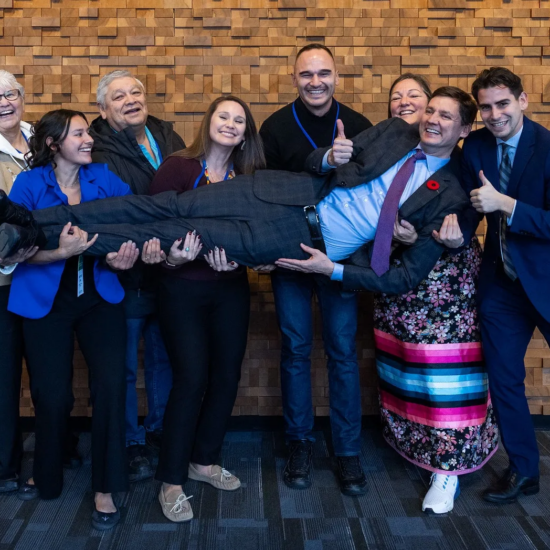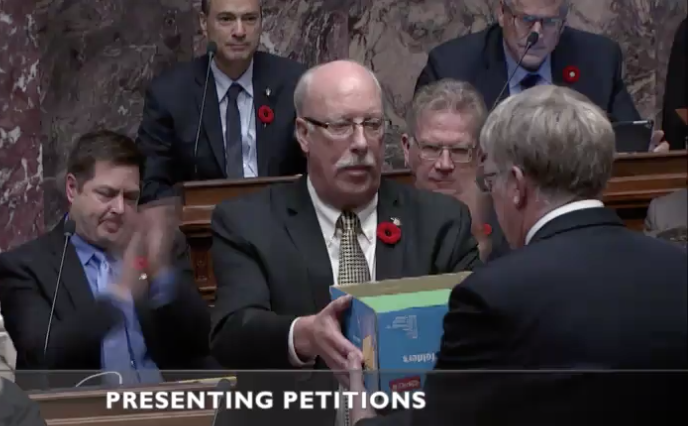
Bob Mackin
A Courtenay resident opposed to the NDP government’s restrictions on residential use of farmland said it was no surprise her petition was rejected in late October.
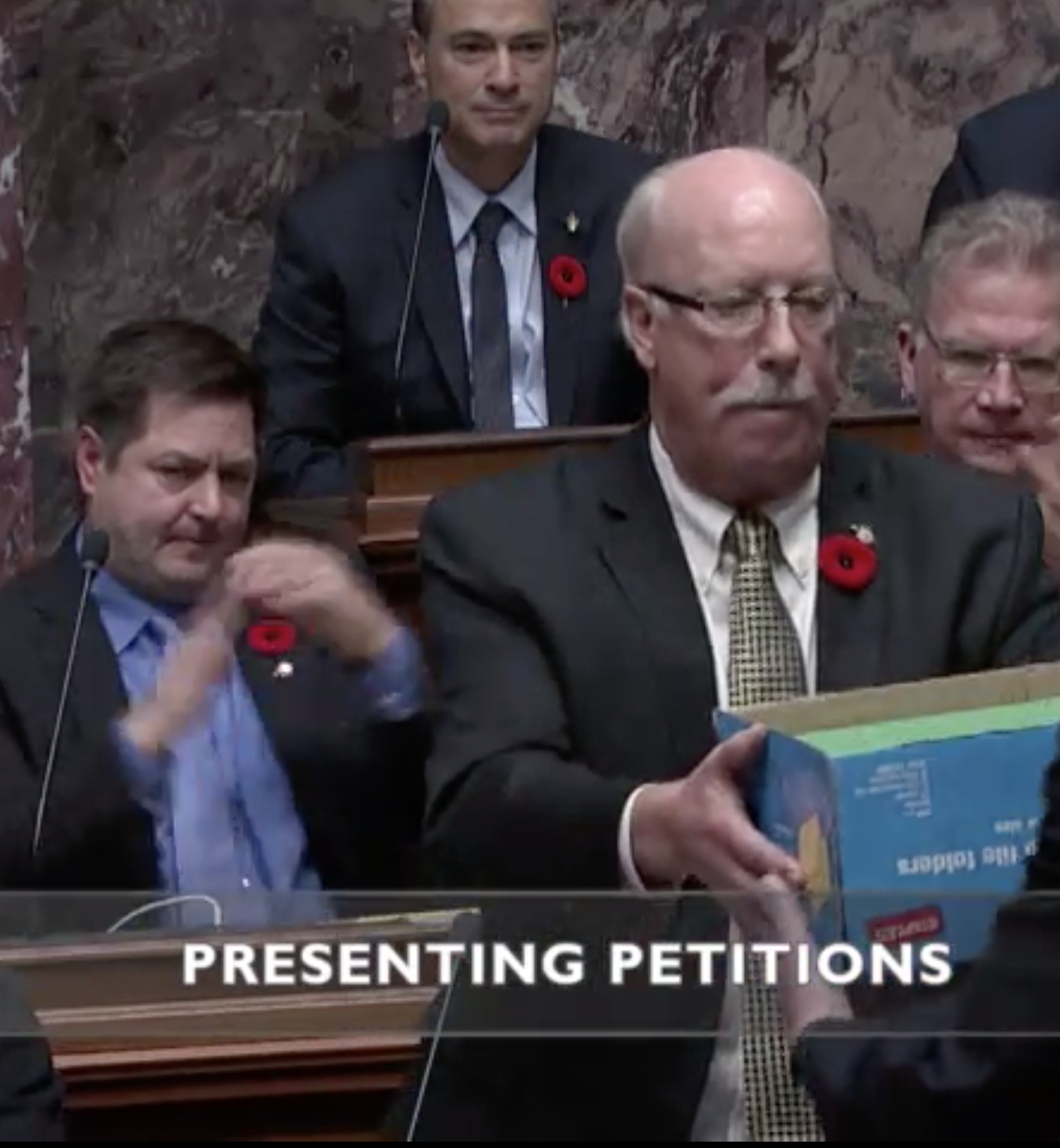
Delta South BC Liberal MLA Ian Paton presenting a petition before it was quietly rejected (Hansard TV)
Meghan McPherson organized an Oct. 28 rally against Bills 52 and 15 outside the Legislature. Her aim is to reverse the ban on secondary, non-farm-use family housing.
Inside the Legislature, Delta South MLA and agriculture critic Ian Paton, a farmer himself, tabled McPherson’s 26,000-signatory Change.org petition as a “30-pound stack” of paper in a box after a raucous question period interrupted by farmers and ranchers in the public gallery.
The petition was later returned to Paton by the clerk’s office because “all signatures must be original and written directly on the face of the petition, and not pasted or transferred to it.” Electronic petitions are not allowed.
McPherson said she was called by an aide to Agriculture Minister Lana Popham the week before the rally and told about the rule. She said Paton also knew the petition was unacceptable. (Paton did not reply to theBreaker.news.) McPherson said she is confident at least half the digital signatories are genuine B.C. residents.
“Whether it was in a formal format or not it would be up to the ministry and the current government to decide what they are going to do with it,” McPherson said in an interview. “It shows a lot of defiance to reject a 26,000-signature petition on a technicality.”
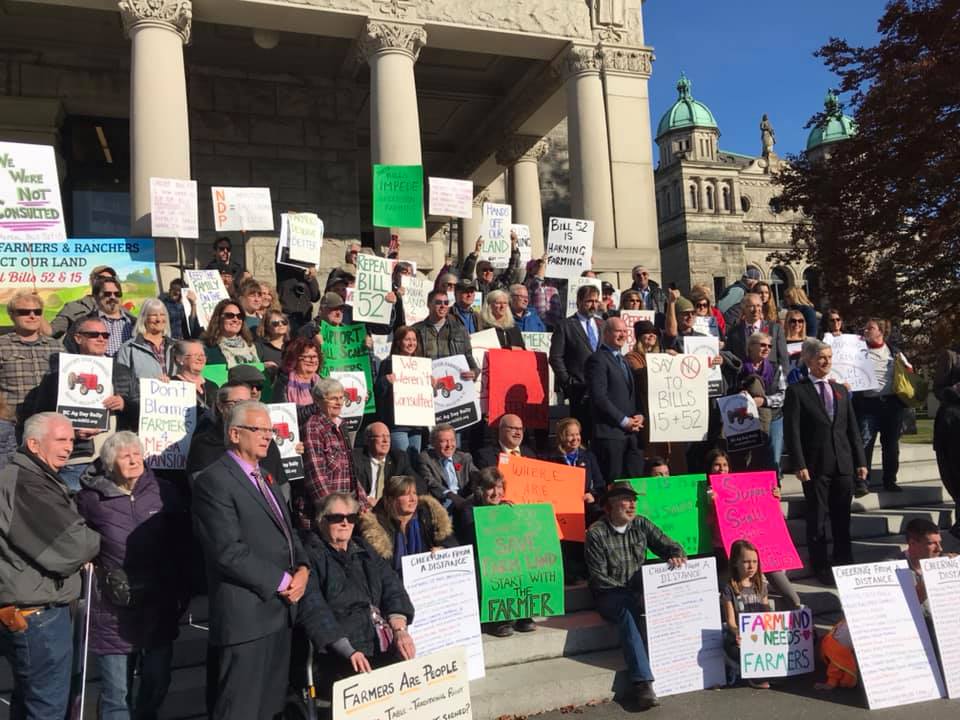
Oct. 28 rally by farmers and ranchers outside the Legislature (Facebook)
McPherson said she used Change.org for convenience. She did not have the time or resources to go door-to-door on her own.
It was at least the second BC Liberal-tabled petition to be rejected in the last two years. A 17,000-name “Scrap the Speculation Tax” petition via Change.org in April 2018 was returned to Kelowna West MLA Ben Stewart. The originator of the petition refused to reveal his or her name to theBreaker.news. That petition ran concurrently with Hill and Knowlton’s anti-tax social media campaign for the Urban Development Institute.
More than a century ago, Austrian politician and historian Joseph Redlich called the petition “the oldest of all parliamentary forms, the fertile seed of all the proceedings of the House of Commons.”
Twice, while in opposition, the NDP failed to modernize petitions via private member’s bills: In 2014 with Jane Shin’s Electronic Petitions Act and in 2017 with Gary Holman’s Modernizing Public Participation in Democracy Act.
A model for electronic petitions exists at the House of Commons.
While he was Burnaby South NDP MP, Kennedy Stewart successfully proposed a system of MP-endorsed citizen petitions that are published up to 120 days on the House of Commons website. Supporters are required to provide full names, province, territory and country of residence, postal code (if within Canada), telephone number and email address for verification by House of Commons staff.
Those petitions that receive 500 or more online signatories from residents or citizens of Canada are tabled in the House of Commons to wait for an official response from the government.
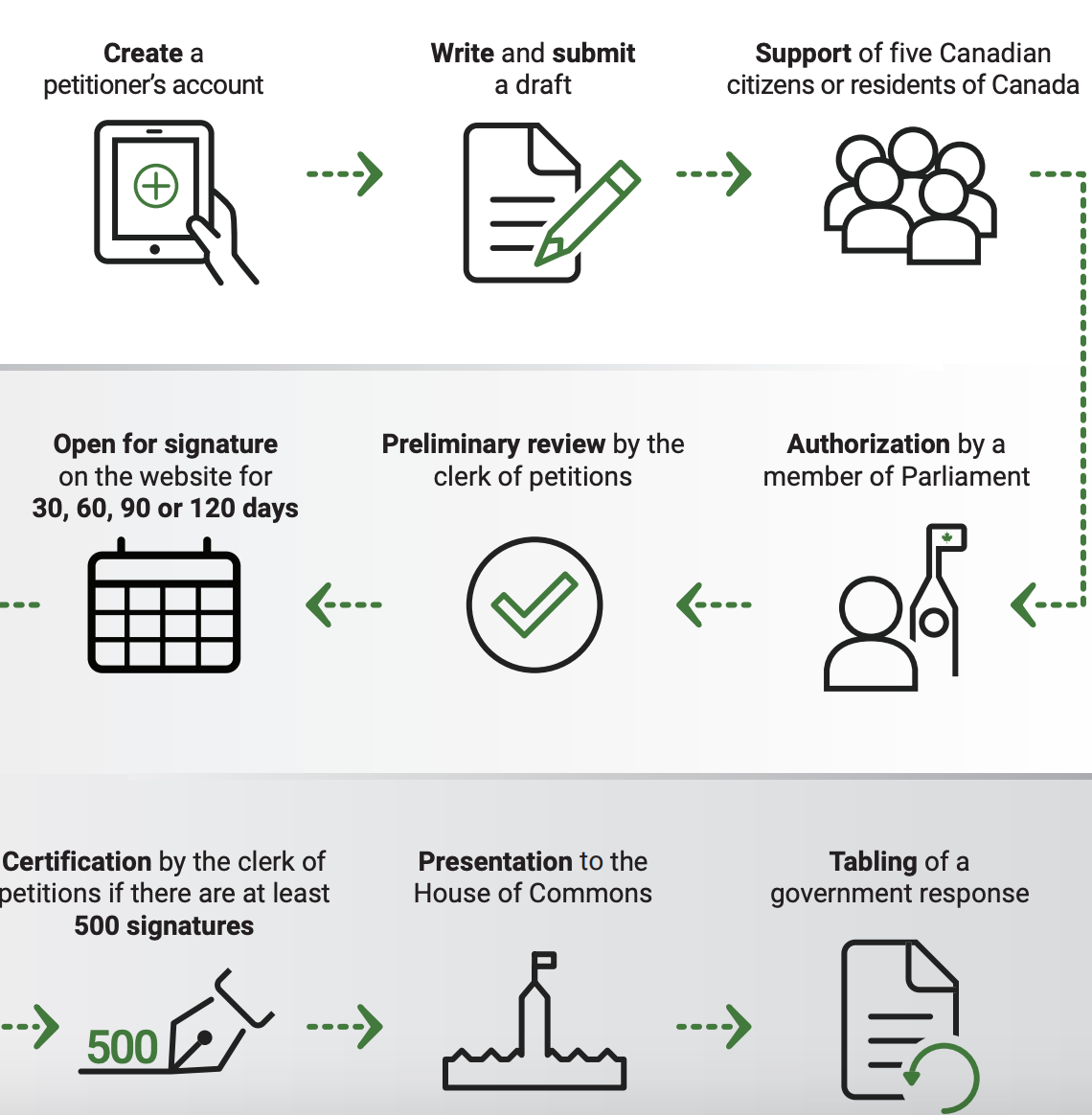
The path of an e-petition (Petitions.OurCommons.ca)
Stewart is now mayor of Vancouver, but has not fulfilled a 2018 campaign promise for a city hall electronic petition system.
McPherson said she and her family moved out of a townhouse and bought a one-hectare parcel on a hillside with a plan to start a hobby farm.
“It was a dream property for us, a place we could stay forever with his parents and my mom, a place for a hobby farm, chickens and goats and build a barn,” she said. “I just wanted to have a nice little rural property with a teeny farm, maybe sell some eggs, maybe feed my neighbourhood.”
Now she is looking at an estimated $800,000 in startup fees to turn it into a farm that conforms with the laws. Undaunted, McPherson plans to start a paper-based petition in the new year, with help from others elsewhere in B.C.
Support theBreaker.news for as low as $2 a month on Patreon. Find out how. Click here.






